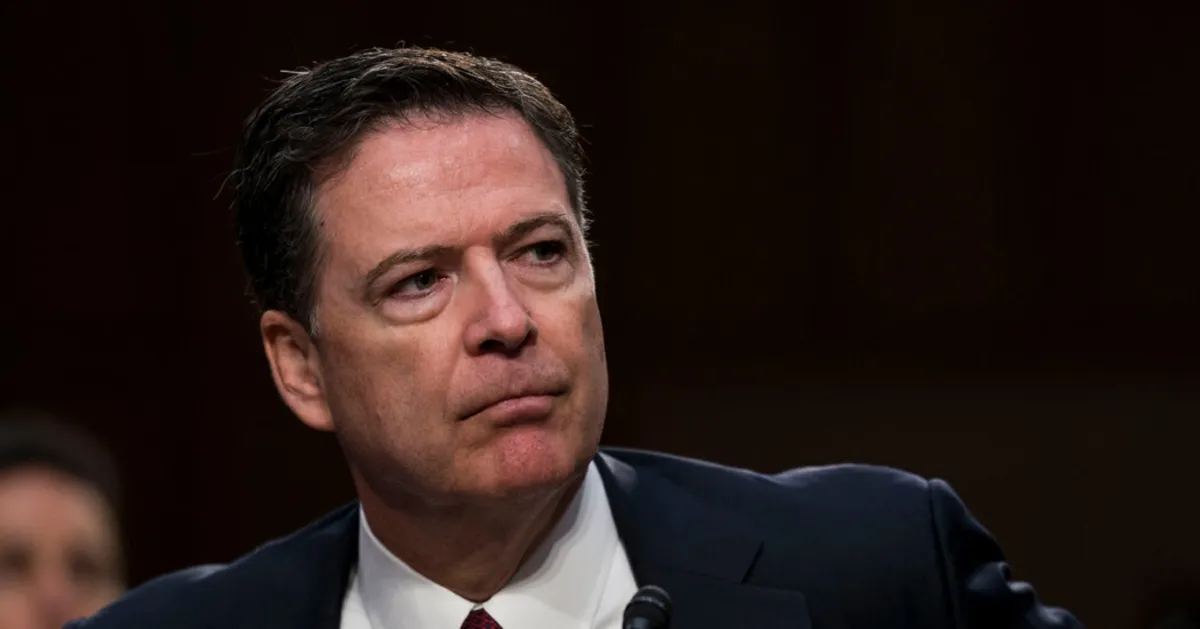
The Secret Service recently questioned James B. Comey, the former F.B.I. director, regarding a controversial social media post that some of Donald Trump’s cabinet officials and allies interpreted as a potential call for the president’s assassination. This development highlights the intense scrutiny surrounding Comey, particularly given his turbulent history with Trump.
The inquiry was initiated after Comey shared a photograph on social media featuring seashells on a beach that formed the numbers “86 47.” This phrase has become a rallying cry among critics of Trump, often seen at protests and on various signs and clothing. The term “eighty-six” is defined by Merriam-Webster as an old slang term meaning to dismiss or remove, which has led to the contentious interpretation of Comey’s post.
Following Comey’s post, Kristi Noem, the Secretary of Homeland Security, publicly stated that the Secret Service, which operates under her department, was investigating the matter. Additionally, Tulsi Gabbard, the Director of National Intelligence, commented on Fox News that Comey should face jail time for his remarks. This public commentary from senior administration officials is uncommon and underscores the seriousness with which they are treating the situation.
In response to the backlash, Comey deleted the Instagram post and issued a statement expressing his surprise at the interpretation of the numbers. He stated, “I didn’t realize some folks associate those numbers with violence. It never occurred to me but I oppose violence of any kind so I took the post down.” This admission indicates Comey’s intent was not to incite violence, but rather a misunderstanding of the implications of his post.
Critics of the Trump administration argue that officials have exaggerated Comey’s post to justify targeting one of Trump's perceived adversaries. The Secret Service typically investigates multiple threats daily to individuals under its protection; however, the public condemnation from high-ranking officials is unusual in these contexts.
The relationship between Comey and Trump has been fraught since early in Trump’s presidency. The tension peaked when Trump fired Comey as the F.B.I. director in May 2017 amid investigations into whether Trump’s campaign colluded with the Russian government during the 2016 presidential election.
In a recent interview with Bret Baier on Fox News, Trump, who has survived two assassination attempts in the previous year, expressed his belief that Comey’s post was indeed a call for violence against him. “He knew exactly what that meant,” Trump asserted. “A child knows what that meant. If you’re the F.B.I. director and you don’t know what that meant, that meant assassination. And it says it loud and clear.”
When asked about potential consequences for Comey, Trump deferred to Attorney General Pam Bondi but emphasized his belief that Comey’s history warranted serious consideration. “And when you add his history to that, if he had a clean history, he doesn’t. He’s a dirty cop, he’s a dirty cop,” Trump stated, reflecting on the deep-seated animosity between the two figures.
This incident serves as a stark reminder of the ongoing tensions in American politics, particularly regarding free speech and the interpretation of social media communications among public officials. As the situation develops, it is clear that the political landscape remains charged, with both sides using every opportunity to assert their narratives.